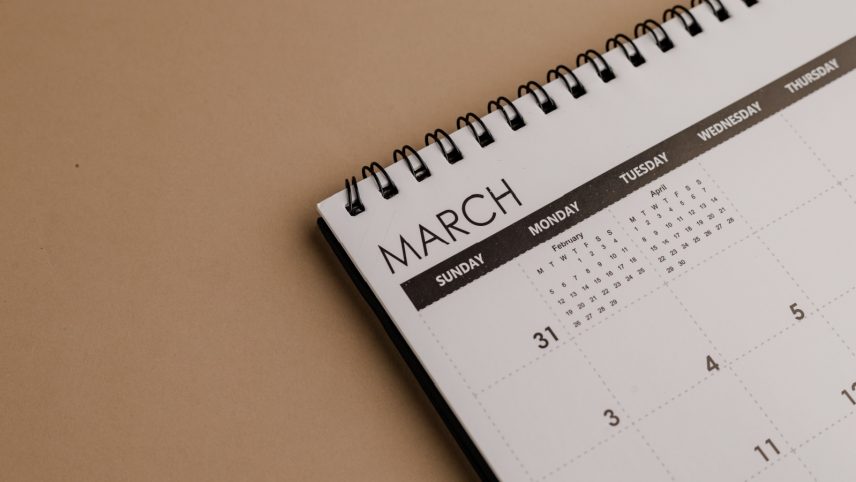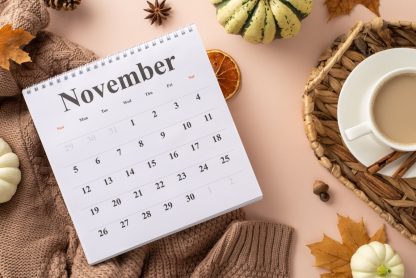Over the past year, many of us have faced numerous challenges and changes. As we move into March, a month symbolizing renewal and growth, it’s the perfect time to focus on mindfulness and self-reflection. Journaling can be a powerful tool to help us navigate our thoughts and emotions, allowing us to gain insight, clarity, and personal growth. This month, let’s explore some impactful journal prompts that can guide us on a journey of self-discovery and positive transformation.
Setting Your Intentions
While commenceing on your mindfulness journey this March, it’s important to set clear intentions to guide you in the process. Setting intentions helps you focus your mind and energy towards specific goals, making your mindfulness practice more purposeful and impactful.
Understanding Your Why for Mindfulness
To begin setting your intentions for mindfulness this month, take a moment to reflect on why you are drawn to this practice. Are you seeking stress relief, personal growth, or simply a sense of peace and clarity in your daily life? Understanding the underlying reasons for your interest in mindfulness will help you create intentions that truly resonate with your goals.
As you examine deeper into understanding your why for mindfulness, consider journaling about your motivations and aspirations. By exploring your thoughts and feelings, you can gain valuable insights into what you hope to achieve through your mindfulness practice, paving the way for more meaningful intentions.
Crafting Meaningful Monthly Goals
Any successful mindfulness practice involves setting achievable and meaningful goals to keep you inspired and on track. Take some time to craft monthly goals that align with your intentions for mindfulness. Whether it’s committing to a daily meditation practice, practicing gratitude, or cultivating self-compassion, choose goals that resonate with your why and feel attainable.
This is an opportunity to challenge yourself while also being gentle and compassionate. Keep in mind, the goal is progress, not perfection. Embrace the journey of growth and self-discovery that comes with setting and pursuing meaningful monthly goals in your mindfulness practice this March.
Week 1: Self-Discovery and Awareness
There’s no better time than now to commence on a journey of self-discovery and cultivate greater self-awareness. This week is all about delving into your inner world, exploring your thoughts, emotions, and beliefs to gain clarity and insight into yourself.
By engaging in mindful journaling and reflection, you can uncover hidden truths, untapped potentials, and cultivate a deeper understanding of who you are at your core. Self-discovery is a powerful tool for personal growth and transformation, and this week’s prompts are designed to help you on this enlightening path.
Daily Prompts to Explore Your Inner World
Inner exploration is a sacred journey that allows you to connect with your true self and peel back the layers of conditioning and societal influences. Take time each day to sit with your thoughts, feelings, and sensations, and jot down any insights that arise during this reflective practice. Here are some prompts to get you started:
Reflect on a childhood memory that shaped your beliefs about yourself. How does this memory still influence you today? Write about a recent experience that brought up strong emotions. What do these emotions reveal about your inner world?
Reflecting on Your Personal Values and Beliefs
With a deeper understanding of your inner landscape, it’s time to turn your attention to your personal values and beliefs. What principles guide your life, and what do you hold dear to your heart? Reflect on how your values align with your actions and decisions, and consider if any adjustments are needed to live in greater authenticity.
Explore how your values may have shifted over time and what events or insights have led to these changes. By fostering awareness of your values and beliefs, you can live a more purposeful and fulfilling life that resonates with your true essence.
Week 2: Mindfulness and Presence
Despite the constant distractions and demands of modern life, finding moments of mindfulness and presence is imperative for our mental and emotional well-being. In Week 2 of our March Mindfulness journey, we will explore various techniques and journal exercises to help you stay present in everyday life.
Techniques for Staying Present in Everyday Life
Present moment awareness can be cultivated through simple practices like deep breathing, grounding exercises, and sensory awareness. Taking time to focus on your breath can help anchor you in the present and calm a racing mind. Grounding exercises, such as feeling the support of the earth beneath you or noticing the sensations of your body, can also bring you back to the present moment. Engaging your senses by paying attention to the sights, sounds, smells, tastes, and textures around you can help you fully experience and appreciate the present moment.
Journal Exercises for Cultivating Mindfulness
Journaling is a powerful tool for cultivating mindfulness and self-awareness. Begin each day by setting an intention for how you want to show up in the world and reflecting on your mindset throughout the day. Use prompts such as “What am I grateful for today?” or “What brought me joy today?” to focus on the positive aspects of your day. You can also practice mindfulness by writing stream-of-consciousness journal entries without judgment or editing, allowing your thoughts to flow freely onto the pages.
The journal exercises for cultivating mindfulness are designed to help you deepen your self-awareness, develop a greater sense of gratitude, and become more present in your daily life. By taking the time to reflect and write about your experiences, thoughts, and emotions, you are creating space for mindfulness to flourish and for personal growth to take root.
Week 3: Emotional Intelligence and Regulation
Your emotional intelligence plays a crucial role in your overall well-being. Understanding and managing your emotions can lead to healthier relationships, better decision-making, and improved mental health. This week, we will focus on developing emotional intelligence and regulating our reactions through journaling exercises.
Identifying and Expressing Emotions through Journaling
Journaling can be a powerful tool for identifying and expressing your emotions. Take time each day to write about how you are feeling – whether it’s happiness, sadness, frustration, or excitement. Reflect on the events that triggered these emotions and explore why you reacted the way you did. This practice can help you gain insight into your emotional patterns and provide clarity on how to better manage them.
Developing Empathy and Compassion for Self and Others
Journaling is also instrumental in developing empathy and compassion for both yourself and others. Write about challenging situations you’ve faced and try to see things from the perspective of the people involved. Practice self-compassion by writing kind and understanding words to yourself, especially in times of struggle. By acknowledging and accepting your own emotions, you can cultivate a greater sense of empathy towards others.
Week 3 will be focused on deepening our emotional connections through journaling exercises that promote self-awareness, empathy, and compassion. These practices can not only enhance our emotional intelligence but also lead to more fulfilling and meaningful interactions with the people around us. Let’s embrace this week with an open heart and a willingness to grow emotionally.
Week 4: Gratitude and Positivity
Harnessing the Power of a Grateful Mindset
All great changes begin with gratitude. Cultivating a grateful mindset can significantly impact our overall well-being and outlook on life. When we shift our focus towards the things we are thankful for, we attract more positivity into our lives. Gratitude allows us to see the silver linings in challenging situations and appreciate the abundance that surrounds us.
Practicing gratitude daily can help rewire our brains to notice and savor the good things in life. By keeping a gratitude journal or simply reflecting on the things we are thankful for, we train our minds to seek out the positive in every situation. Embracing a grateful mindset not only enhances our mental health but also fosters stronger relationships and a deeper sense of fulfillment.
Prompts to Recognize and Celebrate the Positive
Positive self-talk has the power to transform our mindset and propel us towards growth and success. By acknowledging our strengths and achievements, we build confidence and resilience. Journal prompts can serve as powerful tools to help us recognize and celebrate the positive aspects of our lives.
Reflecting on past accomplishments, big or small, can boost our self-esteem and motivate us to set new goals. By focusing on the things that bring us joy and satisfaction, we create a ripple effect of positivity in our lives and inspire others to do the same. Embracing a positive mindset opens doors to endless possibilities and allows us to manifest our dreams with unwavering belief in ourselves.
Power up your positivity by incorporating these prompts into your daily journaling practice. Take a moment to appreciate your progress, celebrate your wins, and envision a future filled with endless opportunities. Be mindful of, positivity is contagious – spread it generously!
Creating A Lasting Mindfulness Practice
Building Mindfulness Habits Beyond March
Keep up the momentum you’ve built during March by creating lasting mindfulness habits that will continue to benefit you in the long run. Consistency is key when it comes to mindfulness, so make an effort to integrate mindfulness practices into your daily routine. Whether it’s taking a few minutes each morning to meditate or practicing deep breathing exercises before bed, find what works best for you and stick with it.
One way to ensure your mindfulness practice lasts beyond March is to set specific goals and intentions for yourself. Write down your mindfulness goals in your journal and track your progress. Celebrate small victories along the way and be gentle with yourself if you miss a day or two. Recall, it’s all about progress, not perfection.
Integrating Journaling into Your Routine for Continuous Growth
Lasting change often starts with reflection, and journaling is a powerful tool to help you gain insight into your thoughts and emotions. By regularly journaling, you can deepen your mindfulness practice by exploring your inner world and gaining a better understanding of yourself. Consider setting aside time each day to write in your journal, whether it’s in the morning to set intentions for the day or in the evening to reflect on your experiences.
For a more structured approach, try integrating journal prompts into your routine. Prompts can help guide your reflection and spark new insights. You can find prompts online or create your own based on what you’re currently working on in your mindfulness practice. Recall, journaling is a personal practice, so make it your own and enjoy the journey of self-discovery.
A consistent journaling practice can complement your mindfulness habits by providing a space for self-expression and growth. Consider journaling as a form of self-care, where you can unload your thoughts, set goals, and cultivate a deeper connection with yourself. As you continue to integrate journaling into your routine, you may find that it not only enhances your mindfulness practice but also fosters personal development and emotional well-being.
To wrap up
So, reflecting on these journal prompts for growth can be a powerful way to cultivate mindfulness in your daily life. By setting aside time to engage with these prompts, you are giving yourself the opportunity to deepen your self-awareness, gain new perspectives, and nurture personal growth. Remember that growth is a journey, and it’s okay to take small steps each day towards becoming the best version of yourself.









